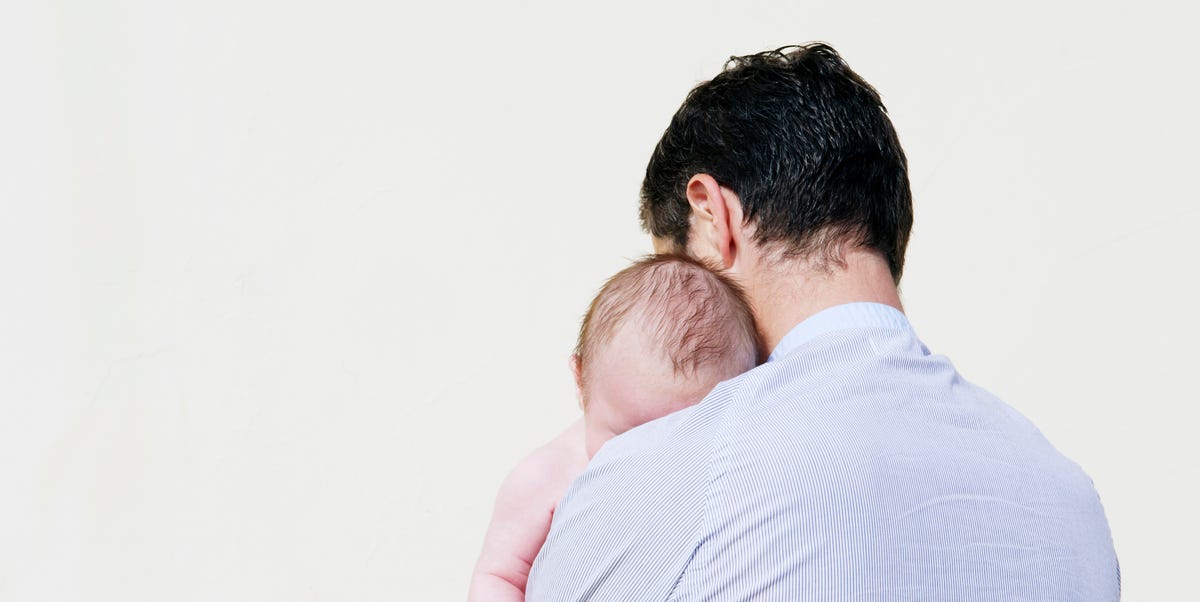Occasionally, some men will develop depression that goes beyond what we would refer to as the 'blues' or common worries. In fact, a study published in the August 2006 edition of Pediatrics found that ten percent of new dads — compared with 14 percent of new moms — showed signs of moderate or severe postpartum depression. Yes, men do get postpartum depression. It’s a fact that most people – and even many health professionals – don’t know. As a result, most men with postpartum depression suffer in isolation. With PostpartumMen, these dads are no longer alone. Signs of Postpartum Depression and Anxiety in Men. Men and women can experience depression very differently. Here are some symptoms that are common in men: Increased anger and conflict with others. Increased use of alcohol or prescription/street drugs. Frustration or irritability. That's a 'striking increase' from the 3% to 5% of men in the general population that have depression, Paulson tells WebMD. The research, presented here at the annual meeting of the American.
New fathers can get postpartum depression after a baby is born.Postpartum depression is more commonly associated with women, but up to a quarter of new fathers may also get it.
While men may not experience the same hormonal shifts women do after the birth of a child, other factors - like lack of support or financial stress - can negatively impact a father's mental health.
Here's what you need to know about what paternal postpartum depression looks like, and how to get proper help as a new father.
Yes, men can get postpartum depression
Rpg maker vx ace lite download free. An estimated 4% to 25% of new fathers experience postpartum depression in the first two months after their child's birth.
Any big life transition, like becoming a parent, can play a part in the development of a mood disorder, says Dana Dorfman, PhD, a licensed psychotherapist in New York City. While becoming a parent can be joyful, it's also a big change that can bring up complicated feelings of missing your former life.
'For men, there's this sense of loss and a massive shift in the sense of one's self,' Dorfman says.
Risk factors for dads include high levels of stress, estrangement from a partner, lack of a support network, and a history of mental health problems.
Whether or not the mother has postpartum depression also plays a part. Men with partners who experience postpartum depression are 2.5 times more likely to experience depression by the time their baby is six weeks of age.
'Men are likely to have fewer opportunities to express feelings and oftentimes their emotional support is from their partner, who is likely to also be overwhelmed and preoccupied,' Dorfman says.
How to know if you have postpartum depression
The symptoms of postpartum depression are the same for men and women, though they may manifest differently, says Mayra Mendez, PhD, a licensed psychotherapist and program coordinator for intellectual and developmental disabilities and mental health services at Providence Saint John's Child and Family Development Centre.
Some common symptoms of postpartum depression include:
- Persistent sadness
- Feelings of hopelessness
- Changes in sleep and appetite
- Decreased interest in previously enjoyed activities
- Loss of energy and focus
- Thoughts of death or suicide
In men, this may manifest as irritability, physical symptoms like headaches or digestive problems, and spending more time away from family, like staying late at work. Mac boot camp windows 10 enterprisetreerealestate. If left untreated, postpartum depression can inhibit bonding with the baby for both mums and dads, which can negatively impact the child's social and emotional development.
According to Mendez, depression in men may go unrecognised or undiagnosed due to their tendency to minimise symptoms. 'Men tend to hide their emotions and are often unwilling to talk about their emotional needs,' Mendez says.
Since men are less conditioned to express vulnerability than women, they might feel a greater sense of shame around postpartum depression, Dorfman says, and delay seeking help out of fear of projecting weakness.
How to get help for men with postpartum depression

If you're a new dad and you're worried you may have postpartum depression, reach out to your primary care provider as soon as you notice symptoms. If your employer offers an employee assistance program, that may also be a good place to start. They can provide a referral or maybe even short-term support.
For both mothers and fathers, the longer it takes to connect with resources, the longer the symptoms can last, Dorfman says, so early awareness and recognition are important for treatment. With adequate treatment, postpartum depression can improve within six months.
The research on postpartum depression treatment so far has focused on women and there is no significant body of research that focuses solely on men, Mendez says. But fathers that experience depression can benefit from the same mental health treatment, including psychotherapy and medication. Finding community with other new dads or joining a support group for dads with depression can also be helpful.

Postpartum In Men
Taking care of yourself during this huge life transition - by getting adequate sleep and eating well - can also help improve your mental health, Dorfman says.
Can Men Have Postpartum


Pictures: Famous women who suffered from postpartum depression (Showbizz)
